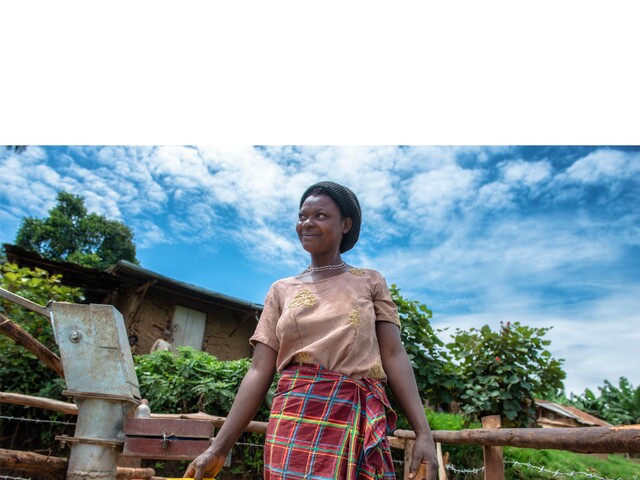
Explore our pages
Narrow down your search by using the filters. Dive deeper using advanced search.
Please find below your results. You can filter results or use our Resources: Advanced Search facility.
When realising safe sanitation avoid making pit emptying an afterthought. Read more...
Exploring existing regulatory frameworks around faecal waste management, faecal sludge accumulation rates, and associated pit filling rates. Read more...
Exploring existing regulatory frameworks around faecal waste management, faecal sludge accumulation rates, and associated pit filling rates. Read more...
Video highlighting innovative solutions to sanitation challenges in the flood-prone Kole district, in northern Uganda. The project was an initiative of the Ministry of Health, through the Uganda Sanitation Fund supported by the Sanitation Hygiene Fund (formerly the Water Supply and Sanitation Collaborative Council - WSSCC).
Read more...
This video highlights the interventions by Water for People together with the Ministry of Water and Environment and development partners to promote market-based sustainable sanitation solutions through Town Sanitation Plans. The case story is of Kole Town Council in northern Uganda. This initiative was supported by the Sanitation Hygiene Fund ( formerly the Water Supply and Sanitation Collaborative Council) and documented by IRC Uganda.
Read more...In this podcast the three speakers talk about their specific experiences in handwashing, menstrual hygiene, food hygiene and behaviour change. Read more...
In this WASH Talk episode, we talk about hygiene promotion, handwashing and behaviour change, highlighting an experience in Bhutan. Read more...
Do the hygiene interventions in Bhutan as part of the governments Rural Sanitation and Hygiene Programme (RSAHP) encourage safer hygiene practices... Read more...
Striving for a world where women at all levels have the policies, the budgets and are prioritising WASH activities, that can be monitored,... Read more...
Striving for a world where women are in decision-making positions for WASH at district and national level holding budgets and making policies. Read more...
In 2008, the Sustainable Sanitation and Hygiene for All programme started supporting the government of Bhutan in developing a new approach to sanitation and hygiene. The programme focuses on fostering positive hygiene behaviour change, building demand for improved sanitation, encouraging private sector solutions, and developing effective WASH governance at all levels. It builds on what the community has already accomplished in other areas.
After seven years, there is wide spread recognition that the approach works really well and has been fully endorsed by the Ministry of Health in 2010. With the help of SNV, UNICEF and the Red Cross, the programme has now reached nine of the twenty districts, mobilising families and communities to invest in improved sanitation, without subsidies. To date, 24 sub-districts have reached 100% access to improved sanitation. The government of Bhutan has now made sanitation and hygiene a priority, committing to increasing rural access to improved sanitation and hygiene from 54% to more than 80% by 2018. While this is a big step in the right direction, there is not enough funding available to support this commitment.
Mr. Rinchen Wangdi, Chief of the Public Health Engineering Division said, "Achieving the goals Bhutan has set will require strong leadership and investment from the government (an investment of USD 2.7 per person leads to improved sanitation and hygiene practices district-wide). This means prioritising sanitation and hygiene in budgets, in plans, and in the minds of our local leaders." He added, "If we can do that, we can achieve universal access in Bhutan."
Read more...A hygiene effectiveness study to assess whether the hygiene interventions in Bhutan are successful in encouraging safe hygiene practices and how much... Read more...
An analysis of hygiene effectiveness and costs in Bhutan. Read more...
A rapid assessment to understand current and potential future demand and supply for sanitation products and services in three districts in Cambodia. Read more...
The results presented in this paper are based on the performance monitoring data collected, managed and analysed by the rural SSH4A teams of SNV... Read more...
Report of the SSH4A learning event held from 14 - 17 March 2016 in Cambodia. Read more...
This poster on the costs of hygiene promotion in Bhutan was presented at the 2016 WASH Futures Conference in Brisbane, Australia. Read more...
A group of gifted local performers with different disabilities made us realise that going to the toilet is not as easy for everyone as you might think. Read more...